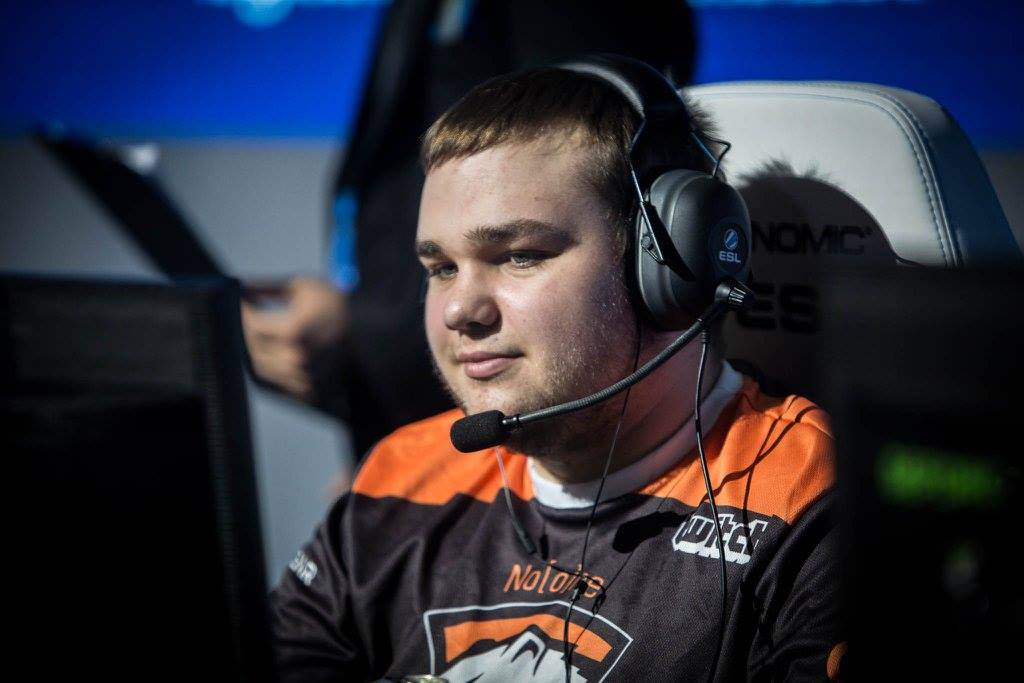No[o]ne: «It’s always fun to learn»
Shortly before the start of Dota Pit League Season 5 Vladimir “No[o]ne” Minenko gave an interview to the official website of Virtus.pro. The player told about his attitude to casters and preparations for the trip to Croatia as well as offered his advice to anyone willing to become a professional player.

— The current Virtus.pro G2A roster is well-known for their aggressive playstyle. Whether you succeed or not often depends on players’ effectiveness in team fights. Do you adjust your strategies to anyone?
— Everything depends on the specific pick. The team mainly plays around me or Roman (RAMZES666).
— How did your team manage to demonstrate such good results at the very beginning? Is there any connection between the players?
— It’s not about connection. All of us had the same goal. When it happens, a team starts winning. We’ll see how it turns out in future. The players, analyst and manager have established good, friendly relationship.
— Many analysts doubt your draft decisions both before and after matches. How do professional players treat criticism?
— To put it mildly, Russian-speaking casters are shocking. Analysts are relatively okay. Hyping and assessing is pretty natural for analysts and casters. However, it should be done to a limited extent and with appropriate words. You have to pick up words carefully not to offend players. Unfortunately, our [Russian-speaking] casters can’t do that. They think they’re better than this. I believe that former professional players should become analysts. Anyone can be a caster, but it’s different when it comes to analysts. The game is too difficult.
— Do you ever argue about the draft stage? How often do you doubt your picks?
— We don’t have any disagreements during the draft stage or matches. We simply listen to each other throughout the pick/ban phase. At times someone chooses a hero on his own. For example, Solo does it because he is the team captain, or RAMZES666 can pick a hero for himself or give advice on a good combo for a specific situation. Everything goes according to our plan most of the time. If our enemies surprise us with something, we do the same.
— What, do you think, was the reason why you lost in Boston?
— Evil Geniuses read our minds. We knew what they were going to play. They knew what we were going to play. It turned out that they had slightly more strategies and came up with the best ways to counter our team. That’s why we lost.
— Before your trip to Malaysia you didn’t have that much time to master the new meta. How did you adapt to the new patch? How much did you have to change your playstyle?
— Before the trip to Malaysia we had a difficult period. Games didn’t go well when we practiced. The results were incomparable to what we did in the old patch. We didn’t figure out the meta even by the start of the tournament. Our picks and bans were awful. We simply lacked information about meta and opponents. Regardless of the picks, our performance was poor. At the moment picks guarantee 60-70% of your success, which is why they’re so important now.
— What do you like the most about the new patch? And what do you find the most annoying?
— I like almost everything about it. It’s a new game. It is the same but has changed a lot, which means you have to learn. And it’s always fun to learn. I like the patch. The only problem is that I still can’t adapt.
— What has been the most memorable tournament you played at so far?
— ESL One New York. Because we won it. ESL One Frankfurt also stuck in my mind. Boston wasn’t that memorable because we lost there. In Frankfurt we performed well but lost due to mistakes.
— You made it to the professional scene thanks to your noticeable individual skill. Can you give any advice to young players willing to succeed in Dota 2? Is there any ultimate formula?
— There is no formula: everything is random. If it doesn’t interfere with your life, uni, personal life and doesn’t irritate your parents, then all you have to do is play and practice as much as possible.
— How much does your analyst help the team? Does he assess your individual moves besides the team ones?
— He helps us massively. Does he assess our individual moves? He’s more likely to do that than not. He tells us about the weaknesses of our opponents and our strengths and tries to combine them in a way to make us be a cut above the enemies.
— Tell us what your team does during large LAN tournaments. How much time do you spend practicing? What do players do more: watch their opponents’ games or analyze their own matches?
— When players have just arrived for a tournament, they simply want to play Dota 2 because flights usually last long. For me, it usually takes at least two days if an event takes place in the USA or China. I just want to play Dota 2. Our official matches start on the following day. Teams practice, relax and try to stay in shape at the same time in order to do their best during matches.
— How do you spend your time at bootcamps? What do you do between games?
— We have many ways to entertain ourselves at bootcamps: tennis, chess, we play CS:GO and watch movies. We just try to relax and get to know each other better.